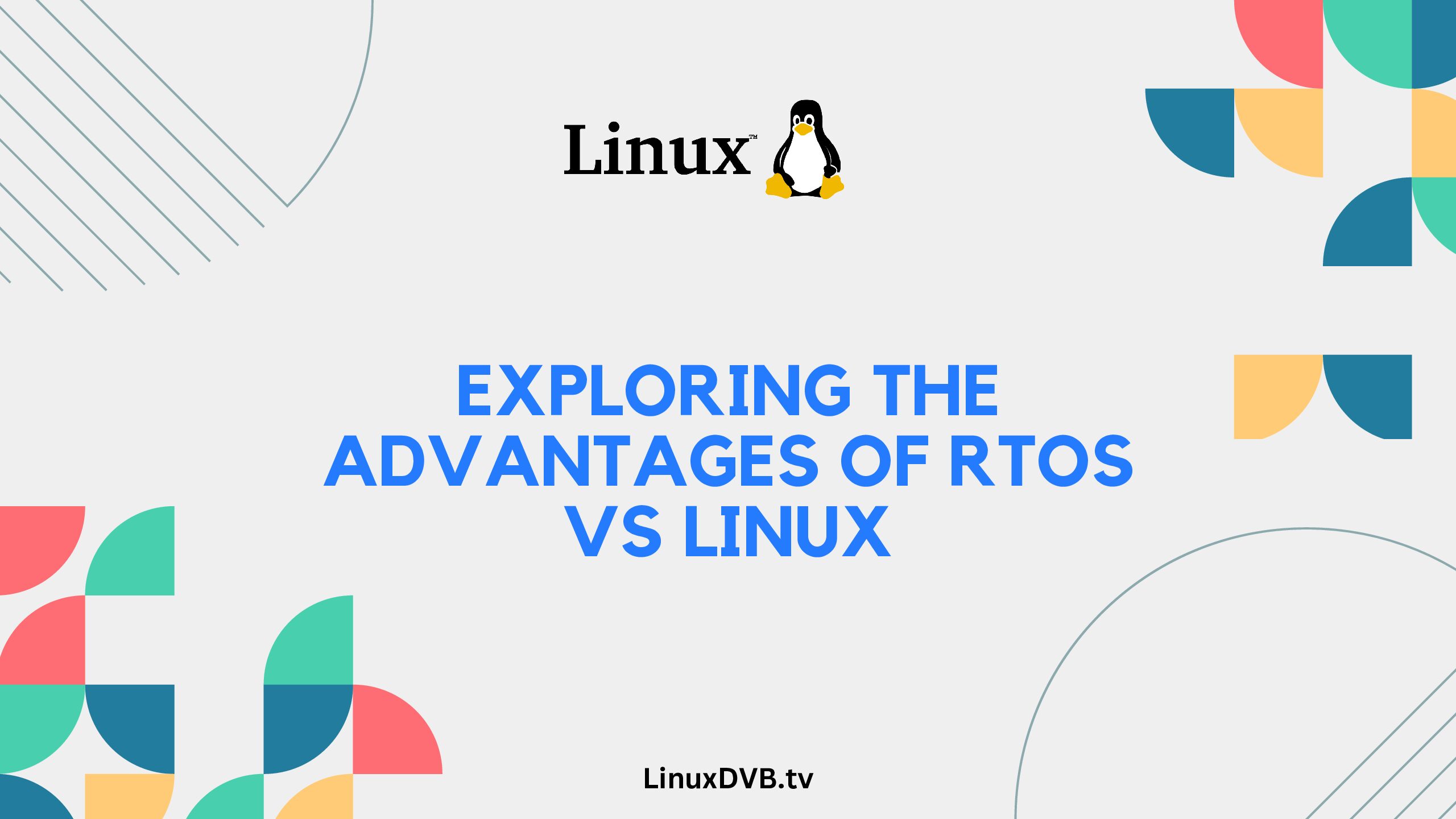Introduction
In the world of embedded systems and software development, choosing the right operating system is crucial. Two popular options often compared are Real-Time Operating Systems (RTOS) and Linux. Both have their own strengths and use cases. In this comprehensive guide, we’ll delve into the advantages of RTOS vs Linux, shedding light on the key differences and helping you determine the best fit for your projects.
Table of Contents
What Are the Advantages of RTOS vs Linux?
RTOS and Linux serve distinct purposes and excel in different scenarios. Let’s explore the advantages of each:
RTOS Advantages
RTOS, designed for real-time applications, offers several advantages:
1. Precise Timing and Predictability
RTOS ensures deterministic behavior, making it ideal for time-sensitive applications like aerospace, automotive, and medical devices. Tasks are executed within defined time limits, guaranteeing reliable performance.
2. Minimal Latency
RTOS minimizes latency by prioritizing critical tasks. This is crucial in applications where even slight delays could lead to catastrophic consequences, such as industrial automation.
3. Resource Efficiency
RTOS is optimized for resource-constrained environments. It requires less memory and processing power, making it suitable for embedded systems with limited hardware resources.
4. Reliable Task Scheduling
RTOS employs priority-based scheduling, ensuring that high-priority tasks are executed without interruption. This reliability is crucial in safety-critical applications.
5. Deterministic Response to External Events
RTOS provides consistent responses to external events, which is vital in applications where inputs must be processed in a timely and predictable manner.
6. Preemptive Multitasking
RTOS allows tasks to be preempted by higher-priority tasks, guaranteeing that critical operations are addressed promptly.
Linux Advantages
Linux, a versatile and widely-used OS, offers its own set of advantages:
1. Rich Software Ecosystem
Linux boasts a vast range of software tools and libraries, providing developers with a robust foundation to build applications quickly and efficiently.
2. Community Support
The Linux community is vast and active, offering continuous support, bug fixes, and updates. This collaborative environment is advantageous for developers seeking assistance.
3. Multitasking Capabilities
Linux handles multitasking effectively, making it suitable for applications requiring multiple processes to run simultaneously.
4. Networking Capabilities
Linux excels in networking applications due to its built-in networking stack and support for various protocols.
5. Portability
Linux runs on diverse hardware platforms, offering excellent portability. This is valuable when developing applications for various devices.
6. Cost-Effective
Linux is open-source, eliminating licensing costs. This makes it an attractive choice for startups and projects with budget constraints.
Exploring the Use Cases
The choice between RTOS and Linux depends on the application’s requirements. Let’s explore different scenarios where each OS shines:
Use Cases for RTOS
- Automotive Systems: RTOS is crucial in automotive applications like anti-lock braking systems (ABS) and airbag control, where split-second decisions are vital.
- Medical Devices: Medical equipment relies on RTOS to ensure precise timing in treatments, diagnostics, and patient monitoring.
- Industrial Automation: RTOS is used in manufacturing processes, where machinery must operate with high precision and synchronization.
- Aerospace Applications: Avionics systems rely on RTOS to manage critical functions such as flight control and communication.
- Consumer Electronics: RTOS powers devices like digital cameras and smart TVs, where real-time responsiveness enhances user experience.
Use Cases for Linux
- Web Servers: Linux’s multitasking capabilities and networking support make it an excellent choice for web server applications.
- Mobile Devices: Linux serves as the basis for many smartphone operating systems, offering versatility and customization.
- IoT Devices: Linux is a popular choice for IoT devices, providing connectivity and compatibility with various sensors and devices.
- Desktop Computing: Linux-based operating systems offer an alternative to traditional desktop environments, with various distributions catering to different user preferences.
- Scientific Research: Linux’s extensive software ecosystem makes it a favorite among researchers who require specialized tools and libraries.
FAQs
Is RTOS suitable for applications with complex software requirements?
Yes, RTOS can handle complex applications, especially those requiring precise timing and predictable behavior.
Can Linux be used in safety-critical applications?
While Linux can be adapted for safety-critical applications, RTOS is generally preferred due to its deterministic nature.
Can I use Linux for resource-constrained embedded systems?
Linux can be tailored for such systems, but RTOS is often a better choice due to its lower resource demands.
Is RTOS more expensive than Linux?
RTOS solutions can be pricier due to licensing costs, while Linux is cost-effective due to its open-source nature.
Which OS offers better community support?
Linux has a larger and more active community, providing extensive support for developers.
What are the advantages of RTOS vs Linux?
RTOS offers real-time determinism, lower latency, and predictable execution, while Linux provides more features, broader hardware support, and better multitasking.How is RTOS different from Linux?
RTOS is designed for real-time applications with predictable timing, while Linux is a general-purpose OS with less determinism in timing.What is the difference between RTOS and Linux?
RTOS prioritizes real-time responsiveness, while Linux focuses on versatility and a wide range of applications.When to use RTOS vs Linux?
Choose RTOS for time-critical applications like embedded systems and robotics; opt for Linux when features and hardware support are a higher priority.What is the difference between FreeRTOS and Linux?
FreeRTOS is a lightweight real-time operating system for embedded devices, whereas Linux is a full-fledged OS suitable for various computing platforms and applications.Conclusion
Choosing between RTOS and Linux depends on your project’s requirements. RTOS excels in real-time applications where timing is critical, while Linux shines in applications requiring a rich software ecosystem and versatility. Evaluate your needs, consider the advantages of each OS, and make an informed decision that aligns with your project’s goals.

